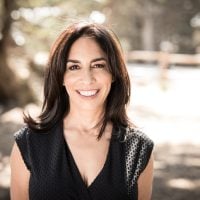During these days of Elul, we metaphorically “take out our souls to examine them,” turning them “soul-ward” to assess the very essence of who we are.
Throughout this season, we seek the deepest truths that live within us. We are strongly encouraged to make amends, to forgive, to ask for forgiveness.
I have turned soul-ward this month.
I want to be honest with you. For a long time, I have been unable to fulfill my obligation to forgive.
Don’t misunderstand—it’s not for lack of desire or intention. But at the end of the day, forgiveness is complicated. It requires open minds, open hearts, letting go of ego, compromise, effort, potential long-term therapy, and dealing with the embarrassment of admitting wrongdoing.
And sometimes, we just aren’t ready to forgive. The hurt, the betrayal, the anger are still too strong for us to overcome. We feel as if our willingness to forgive equates to condoning the behavior of those who have wronged us. We are afraid that if we forgive, we are simply “setting ourselves up” to fall back into the same traps in the future.
We would rather set strong boundaries, remove toxicity from our lives, and find healthier, stronger, more authentic relationships to replace the ones that disintegrated in lies and deceit.
I’m riding in that boat these days, and I’m finding it challenging to figure out how to bring it back to shore. Intellectually, I can understand that resentment and anger are not good for my body, mind, and spirit.
But my heart refuses to let go.
How I wish I could.
What happens to those of us who have not found the path to teshuva (the Hebrew word for repentance, literally translated as “to return”)? Do we “fail” this season of repentance? Is there an alternative assignment? Can we fulfill our obligation without speaking to those who we have wronged or those who have wronged us?
I don’t have the answers. I wish, oh how I wish that I did.
But I am certain about this: I am still on the path—I want to be on the path.
As I begin to feel safe and protected in my new normal, as I continue to filter out those people who have betrayed and abused me, as my circles of friends and confidants grow more defined, I am confident that one day I will find the courage and the strength to truly forgive—and be forgiven.
No one said that making teshuva is easy.
On the contrary, this kind of turning is the most difficult turning that there is.
No matter where we are on the journey, may we all find the fortitude to engage in the deep work of this season of repentance.
~

 Share on bsky
Share on bsky







Read 8 comments and reply